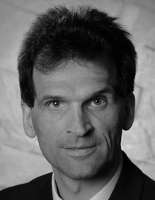
 Non-silicon materials for microsystem technologies: Properties, shaping and applications
Non-silicon materials for microsystem technologies: Properties, shaping and applications
Objectifs du cours
In addition to silicon and established semiconductors polymers, metals, ceramics and composites become more and more important for the realization of new microcomponents and microsystems. These material classes offer due to their broad variety of physical properties new opportunities for areas of applications e.g. under harsh environments like elevated temperatures or presence of aggressive liquid media. The course will cover the principal physical properties of the most important polymers, metals, ceramics and composite materials with a particular relevance for microsystem technologies. In addition the different shaping and replication methods like electroplating, injection molding and derived techniques like powder injection molding, tape casting a.o. will be presented. Finally a huge number of different examples covering the important areas of microoptics, microfluidics, microreaction technology a.o. will demonstrate the application potential of polymer, metals, ceramics and composite materials.
Public cible
The course is designed for technical management, R&D engineers and production specialists who face challenges of new product development and manufacturing technologies.
Contenu
- General material aspects
- Polymers: Properties and replication methods, applications
- Metals: Properties, microstructuring and applications
- Ceramics: Properties, shaping and microstructuring, applications
- Micro powder injection molding as process chain for the mass fabrication of microstructured metal and ceramic components
- Potential of composite materials for microsystem technologies
Enseignant(s)

Dr Thomas Hanemann, Lecturer at the Department of Microsystems Engineering (IMTEK) at University of Freiburg, Germany and Group Leader at the KIT Karlsruhe, Germany. Thomas Hanemann finished his studies of chemistry at the Technical University of Darmstadt (TUD) in Germany with the diploma thesis in organic chemistry in 1987. The PhD followed 1993 at the TUD’s physical chemistry department dealing with the development and characterisation of new material systems with liquid crystalline or nonlinear optical properties, the latter one especially in polymers. As a postdoc he continued related work at the Organic Optoelectronic Materials Department of the IBM Almaden Research Center in San Jose, California, engaged in the development of new photorefractive materials. Since 1995 he is scientific staff member of the institute for materials research at the Research Center Karlsruhe (Forschungszentrum Karlsruhe). Thomas Hanemann’s main areas of interest are the development of new materials (polymers, nanocomposites) with improved physical properties and investigations on new replication techniques like powder injection molding for application in microsystem technology. Since 2000 he is lecturer at the Department of Microsystems Engineering (IMTEK) at University of Freiburg, Germany and for FSRM. Also since 2000 he is group leader at the former Research Center Karlsruhe (FZK), today KIT, and at IMTEK. In 2005 he did his habilitation at IMTEK, since 2009 he got a professorship at IMTEK.
| Date et Lieu (jj.mm.aaaa) | Ce cours n'est pas agendé en ce moment. Veuillez nous contacter en cas d'intérêt |
| Coût (EARLY BIRD) | CHF 690.00 |
| Coût | CHF 890.00 |
| Langue | English |
| Inscription | Deux semaines avant le cours |
| Organisation | FSRM, Fondation suisse pour la recherche en microtechnique |
| Informations et inscription | Gilles Delachaux, FSRM, e-mail: fsrm@fsrm.ch |
